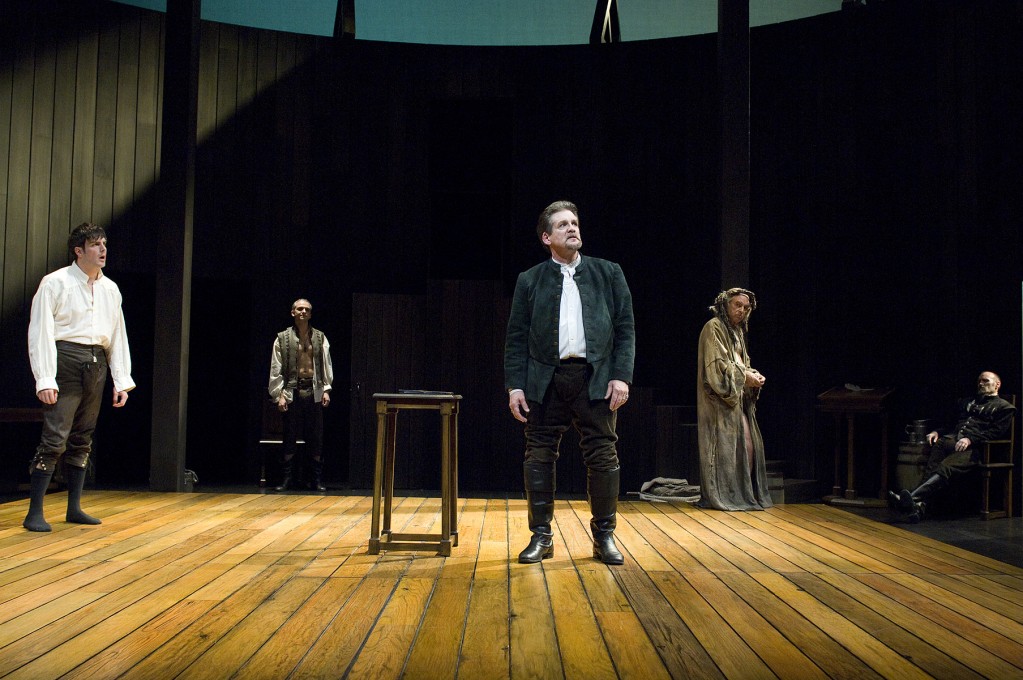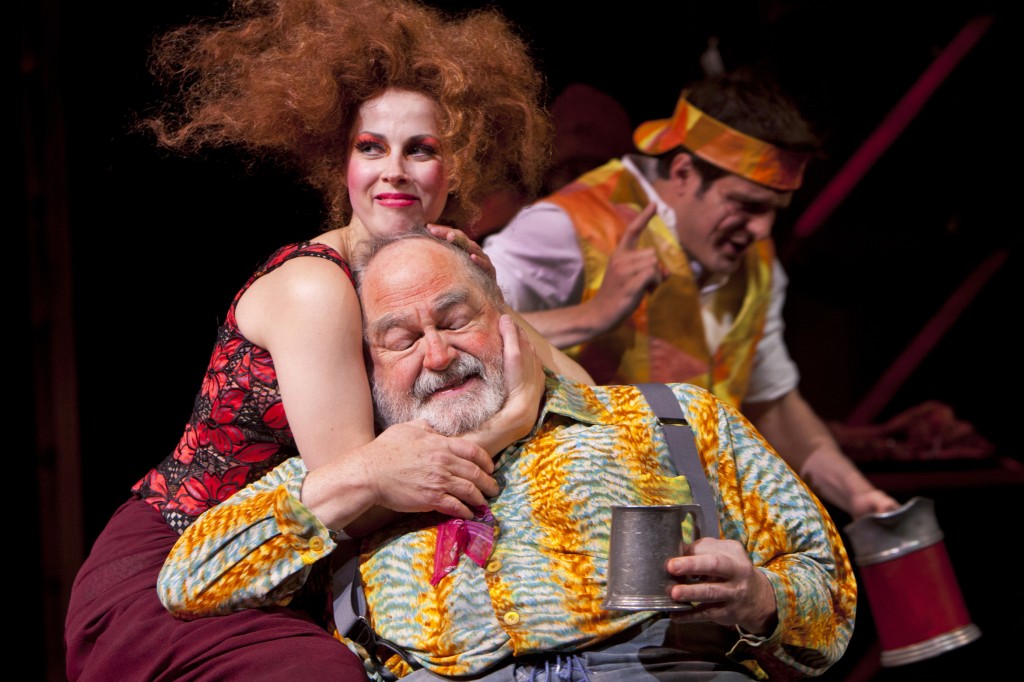
Mr. Scatter has been going to the Oregon Shakespeare Festival in Ashland since roughly the last Ice Age, when he was still fooling around in the cave with that nice new five-hole bone flute he’d got for his coming-of-age ceremony.
Mrs. Scatter hasn’t been taking the trek that long, but she’s a devotee (of the festival, not the flute). Their next generation, the astonishing Ms. Sarah, was practically weaned on the plays: She still sometimes speaks in Elizabethan cadence, just for the fun of it. And now the Large Smelly Boys demand their annual attendance, in not “Are we …?” but “When are we?” terms. This ends up costing quite a few clams.
For complex scheduling reasons that by this point have skipped my mind, the Scatter family travelers won’t be getting to Ashland until the beginning of September this year, which means that we’re relying a lot on hearsay and the word of friends — one of whom, Marty Hughley, actually covers the festival professionally for The Oregonian. Here’s his latest, pretty glowing report. We check in on the Web site Ashland Link. And people come back and tell us what they thought.
Two clear-eyed friends — veteran journalist Paul Duchene, who spent a lot of years in the arts wars and is now executive editor of Keith Martin’ Sports Car Market magazine, and writer Sherry Lamoreaux, co-author of the Algonquin Round Table play Vitriol and Violets — just came back from the festival, and they’re still glowing with the pleasure of having seen the world-premiere production of Bill Cain‘s Equivocation, a play about Shakespeare (or Shag) and what happens when truth and the Official Version don’t align. Here’s what they have to say:
Paul Duchene:
In case you can wangle a way, I saw the best play at Ashland I have seen there in 25 years. It’s a world premiere and it will go to Broadway and the West End for sure. It’s already headed to LA’s Geffen Theater first.
The play is Equivocation and it’s a classic case of how to write a current thriller by setting it in past times.
The plot is that Shakespeare is hired by James I’s government to write a play about the Gunpowder Plot (Guy Fawkes etc al) and how disaster was narrowly averted by the King’s security services.
But as Shakespeare looks into it, he’s not sure any plot ever existed and suspects that people were tortured into confessing something that didn’t happen, as a means to keep the Catholics in line. And the question arises about how to ask hard questions in dangerous times and how not to answer them, because his probing is putting him and his company in danger. Equivocation was the Jesuit way of not answering a question without exactly lying. “Look through the question to see what they’re really asking and see if you can answer that honestly…”
Playwright Bill Cain got the idea when he was in the Tower of London looking at a rack and a government sign above it that said “Nobody was ever tortured on this rack for their religious beliefs.”
And Cain thought of all the names of prisoners scratched in the dungeons below, along with last messages for their wives and families.
It’s brilliant stuff. He was flying back to the States and he thought: I have to go back and research this and write it in London. And he got off the plane in New York and booked a flight back.
Best of all, it’s not a work in progress, it’s sorted.
Sherry Lamoreaux:
We got to see Equivocation … what a play.
It’s linear and easy to follow but many of the scenes progress like tapestries shaken from folded sleep (my, how earnest of me). All the stories dovetail and work. All the layers — (politics then and now), families, death, truth/lies, the Shakespearean canon and the inside workings of theatre in general — are balanced among themselves, and between poignancy and humor. The playwright is working from deep knowledge and complete mastery. An absolutely sure touch. Brilliant material, brilliantly directed and performed, set off by a set so clean and simple that when a noose comes on, it commands the stage. Perfect lighting.
Maybe the best thing I’ve ever seen at Ashland … and it is not a work-in-progress, it’s fully baked. (I’d tighten the ending by four lines, but that’s just me.)
I’ve seen nothing that indicates it was commissioned for OSF, but the play speaks to the setting and the festival as well, and the season uses it like a jewel in a crown, setting other plays referred to in it on its skirts.
*************************************
Paul and Sherry also brought back good reports on Helena de Crespo‘s performance in Shirley Valentine at Oregon Stage Works in Ashland. De Crespo, the globe-trotting, Portland-based actor, stars in Willy Russell‘s one-woman play through July 13. A lot of people still remember her Portland performance a few seasons back in Alan Bennett‘s Talking Heads.
 T. Charles Erickson/OSF
T. Charles Erickson/OSF